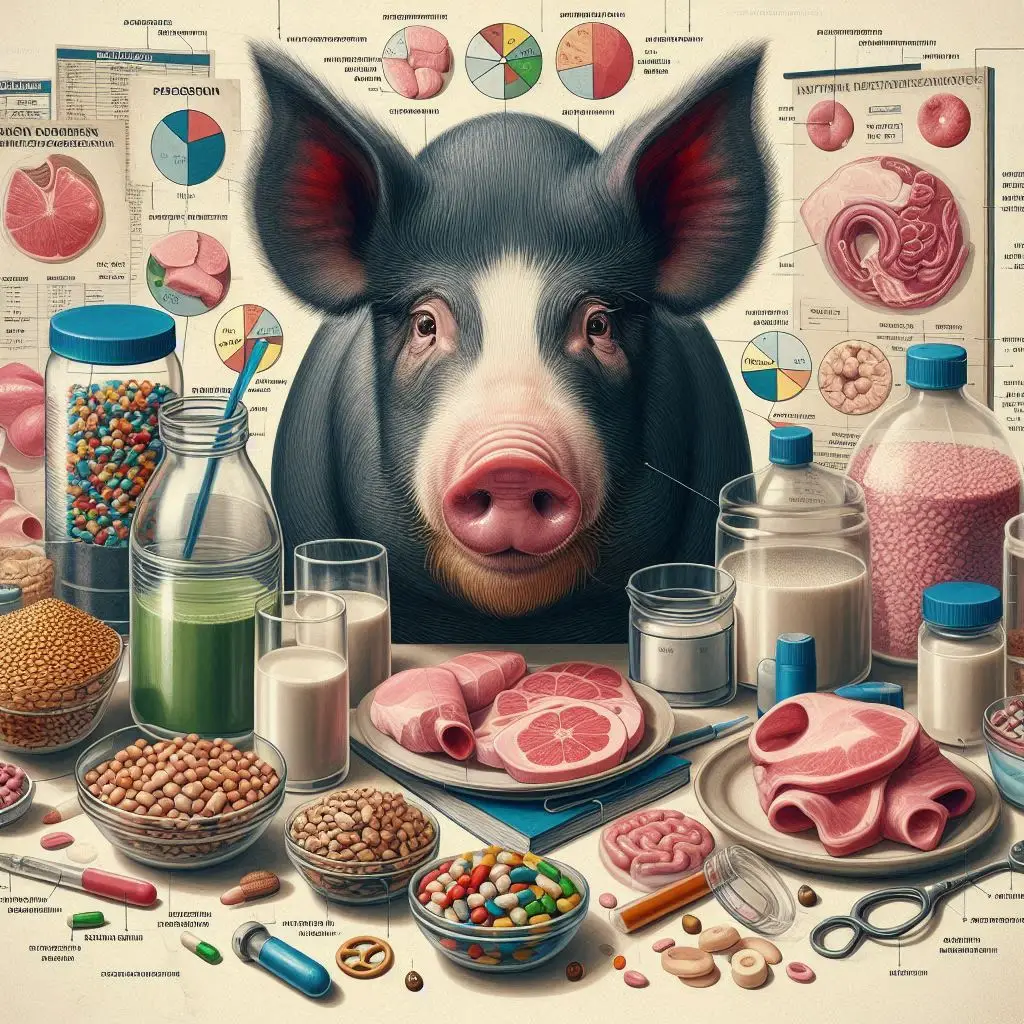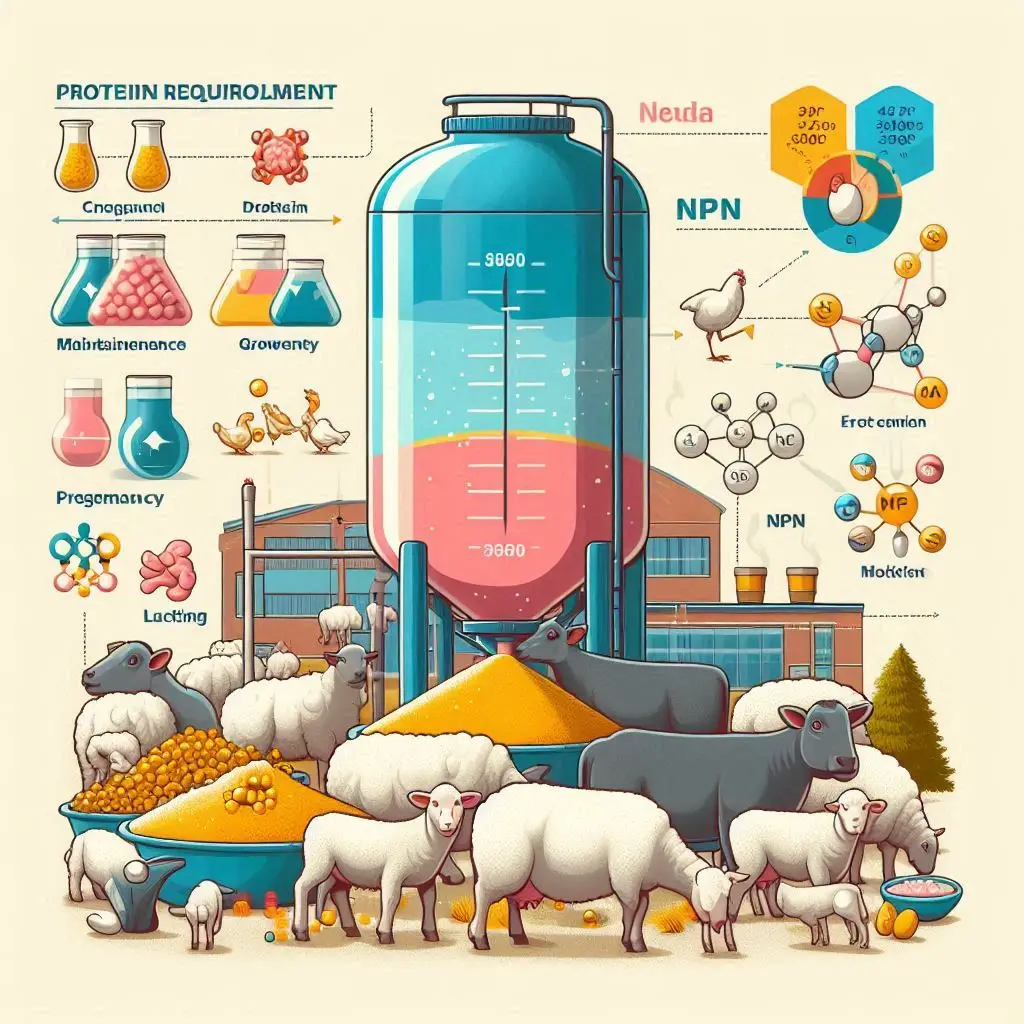Lean Meat Production in Pigs

Introduction
Pigs are among the most efficient livestock for meat production. Proper nutrition plays a significant role in achieving high-quality lean meat. Understanding the nutritional requirements at various growth stages is essential for maximizing growth and profitability.
The Importance of Nutrition in Pig Farming
Nutrition accounts for 60-75% of total production costs in pig farming. A balanced diet not only supports growth but also enhances feed conversion efficiency. Pigs require specific nutrients at different life stages, making it crucial to tailor diets accordingly.
Key Nutritional Components
A well-balanced diet for pigs should include:
- Carbohydrates: Serve as the primary energy source from grains like corn and barley.
- Proteins: Essential for muscle development, sourced from soybean meal and fish meal.
- Fats: Provide concentrated energy and aid in the absorption of fat-soluble vitamins.
- Vitamins and Minerals: Crucial for metabolic functions and immune response.
- Water: Vital for digestion and nutrient transport.
Creep Feed
Creep feed is introduced to piglets before weaning, typically around 21 days of age. This phase is critical for establishing a strong foundation for growth. Creep rations should be highly digestible and energy-dense.
Composition of Creep Feed
Creep feeds often include:
- Wheat and Barley: Provide energy and fiber.
- High-Quality Proteins: Such as fishmeal and soybean meal.
- Probiotics: Enhance gut health and nutrient absorption.
Starter Feed
Starter feeds are designed for pigs immediately after weaning, usually from 21 to 60 days of age. This phase is crucial for establishing a robust foundation for future growth.
Feeding Strategy for Starter Feed
- Gradual Transition: Introduce starter feed gradually to minimize stress.
- Monitoring Intake: Ensure adequate consumption during the initial days post-weaning.
Grower Feed
Grower feeds support pigs from weaning until they reach about 30 kg. This phase focuses on balancing energy and protein to support rapid growth without excessive fat deposition.
Benefits of Grower Feeding
- Maximizes Growth Potential: Ensures pigs receive necessary nutrients.
- Enhances Feed Conversion Efficiency: Improves the ratio of feed intake to weight gain.
- Prepares Pigs for Finishing: Sets the stage for the final growth phase.
Finisher Feed
Finisher feeds are designed for pigs approaching market weight, typically from 100 days until slaughter. The focus during this phase is on maximizing lean meat production.
Composition of Finisher Ration
Finisher feeds are energy-rich and may include:
- Wheat and Barley
- High-Protein Soybean Meal
- Extracted Sunflower Meal
Feeding Strategy for Finisher Feed
- Daily Intake: Pigs may require around 170-180 kg of feed during this phase.
- Energy Requirements: Adjust energy levels as pigs approach slaughter weight to optimize meat quality.
Transitioning Between Feeding Phases
Transitioning between different feeding phases requires careful planning:
- Monitor Growth Rates: Regularly check weight gain to adjust diets accordingly.
- Adjust Nutrient Composition: Modify rations based on performance data.
Feeding Techniques
Phase Feeding
Utilizing different feeds at various growth stages optimizes nutrient intake. This approach ensures that pigs receive adequate amino acids throughout their growing period.
Ad Libitum vs. Restricted Feeding
While ad libitum feeding allows free access to feed, it can lead to overconsumption. Controlled feeding can enhance lean meat production by limiting excessive fat deposition.
Monitoring Intake
Regularly check feed consumption to ensure optimal growth rates. Adjust rations as necessary based on performance data.
Conclusion
Effective feeding strategies are vital for producing lean meat in pigs. By understanding the nutritional needs at each growth stage and implementing tailored feeding practices, producers can significantly enhance growth rates, improve feed efficiency, and ultimately increase profitability in pig farming. Regular consultation with livestock nutritionists is recommended to formulate balanced diets that meet these evolving needs.
For more pearls of Vets Wisdom:
https://wiseias.com/partitioning-of-food-energy-within-animals/





Responses